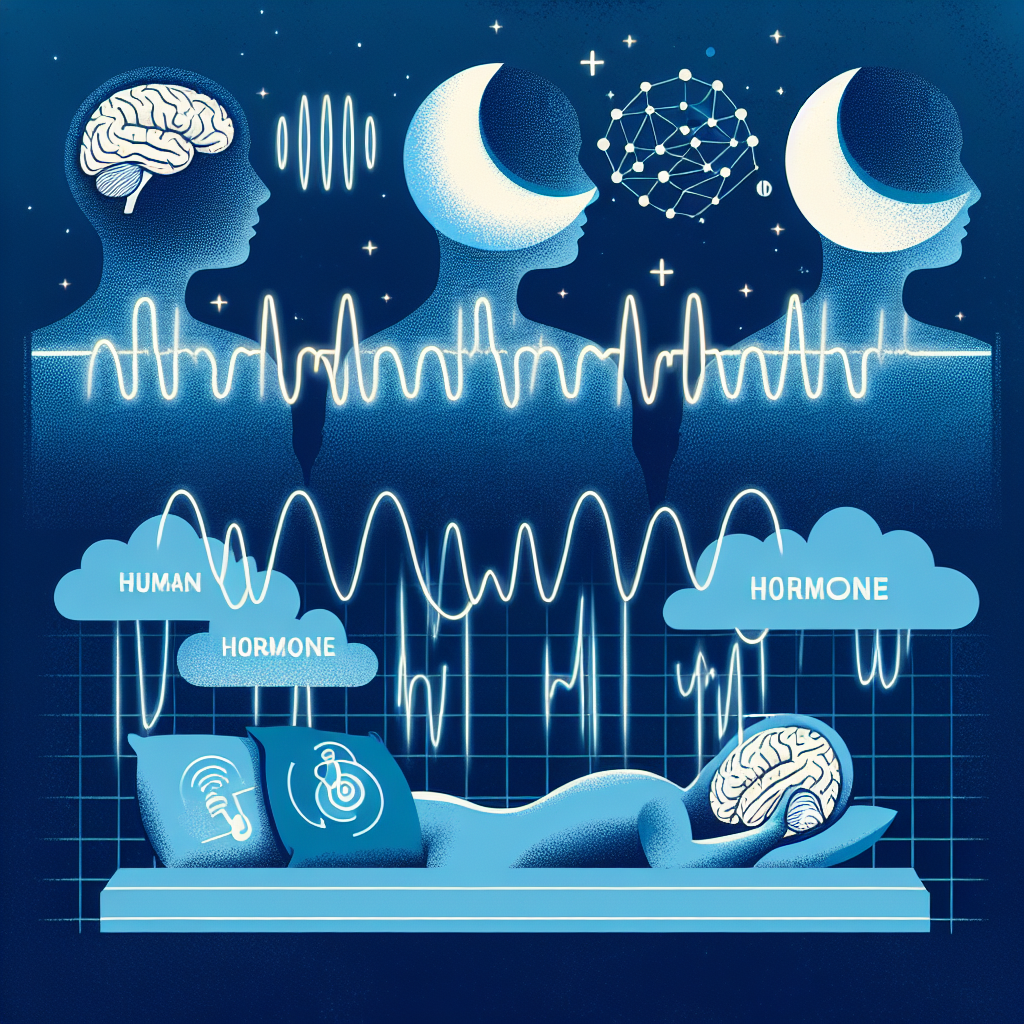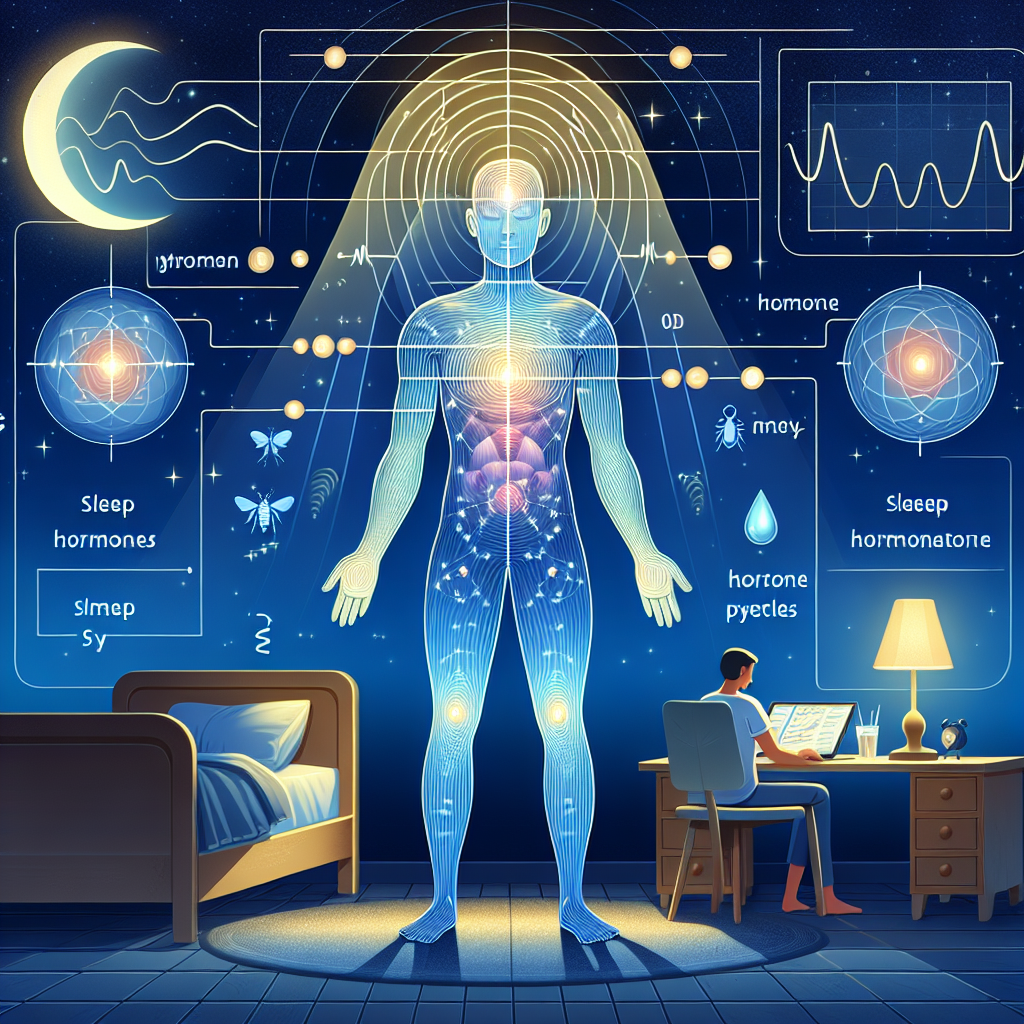How EMFs Impact Sleep and Hormones

Discover how EMFs impact your sleep and hormones! Learn more about the effects and how to protect yourself. Visit My Vibrant Vitality today.
Understanding the Impact of EMFs on Sleep Quality and Hormone Regulation
Electromagnetic fields, commonly referred to as EMFs, are invisible areas of energy that are often associated with the use of electrical power and various forms of natural and man-made lighting. In our modern world, we are constantly surrounded by EMFs, from our smartphones and laptops to our Wi-Fi routers and microwaves. While these devices have undoubtedly made our lives more convenient, there is growing concern about the potential impact of EMFs on our health, particularly in relation to sleep quality and hormone regulation.
Sleep is a vital physiological process that allows our bodies to rest, repair, and rejuvenate. However, exposure to EMFs, particularly at night, can disrupt this process. Research has shown that EMFs can interfere with the body’s production of melatonin, a hormone that regulates sleep and wakefulness. Melatonin is produced in response to darkness and is crucial for maintaining our circadian rhythm, or internal body clock. When this rhythm is disrupted, it can lead to a host of sleep-related issues, including insomnia, restless sleep, and daytime fatigue.
EMFs can affect melatonin production in several ways. Firstly, they can disrupt the pineal gland, which is responsible for producing melatonin. This disruption can lead to decreased melatonin levels, making it harder for individuals to fall asleep and stay asleep. Secondly, EMFs can interfere with the body’s internal clock, causing it to misinterpret when it should be awake and when it should be asleep. This can lead to irregular sleep patterns and a disrupted sleep-wake cycle.
In addition to impacting sleep, EMFs can also affect hormone regulation. Hormones are chemical messengers that regulate many of our body’s processes, including growth, metabolism, and mood. EMFs can interfere with the body’s endocrine system, which is responsible for producing and regulating hormones. This interference can lead to hormonal imbalances, which can have a wide range of health implications.
For instance, EMFs have been linked to disruptions in the production of cortisol, a hormone that helps regulate stress responses. High levels of cortisol can lead to a host of health issues, including weight gain, high blood pressure, and a weakened immune system. Furthermore, EMFs can also interfere with the production of thyroid hormones, which regulate metabolism. This can lead to symptoms such as fatigue, weight gain, and depression.
While more research is needed to fully understand the impact of EMFs on sleep and hormones, the evidence so far suggests that we should be mindful of our exposure. Simple steps such as turning off electronic devices at night, keeping devices out of the bedroom, and using EMF-blocking products can help reduce exposure and potentially improve sleep quality and hormone regulation.
In conclusion, while EMFs are a ubiquitous part of our modern lives, it’s important to be aware of their potential impacts on our health. By understanding how EMFs can disrupt sleep and hormone regulation, we can take steps to mitigate these effects and protect our health. As we continue to navigate our increasingly digital world, it’s crucial that we prioritize our well-being and take proactive steps to safeguard our sleep and hormonal health.
Exploring the Connection Between EMFs, Sleep Disorders, and Hormonal Imbalances

Electromagnetic fields, commonly referred to as EMFs, are invisible areas of energy often associated with electrical power, radio waves, and microwaves. While they are a natural part of our environment, the proliferation of electronic devices and wireless technologies in recent years has significantly increased our exposure to artificial EMFs. This has raised concerns about their potential impact on health, particularly in relation to sleep disorders and hormonal imbalances.
Sleep is a vital physiological process that allows the body to rest, repair, and rejuvenate. However, the quality of sleep can be significantly affected by exposure to EMFs. Research suggests that EMFs can interfere with the body’s circadian rhythm, the internal biological clock that regulates sleep-wake cycles. This disruption can lead to insomnia, frequent awakenings, and other sleep disorders.
The mechanism behind this is thought to involve the production of melatonin, a hormone that plays a crucial role in sleep regulation. Normally, melatonin levels rise in the evening, helping you feel sleepy, and decrease in the morning to help you wake up. However, exposure to EMFs can suppress the production of melatonin, leading to difficulty falling asleep or staying asleep.
Moreover, EMFs can also impact other hormones in the body. For instance, studies have shown that EMFs can affect the secretion of cortisol, a hormone that helps regulate stress responses. High levels of cortisol can lead to a variety of health problems, including anxiety, depression, heart disease, and weight gain.
Furthermore, EMFs can influence the function of the thyroid gland, which produces hormones that regulate metabolism. Exposure to EMFs can lead to an overactive or underactive thyroid, resulting in symptoms such as fatigue, weight changes, and mood swings.
The potential impact of EMFs on hormones and sleep is a growing area of research, and while the exact mechanisms are still not fully understood, the evidence so far suggests a clear link. However, it’s important to note that the effects of EMFs can vary depending on factors such as the frequency and intensity of exposure, as well as individual susceptibility.
While it may not be possible to completely avoid exposure to EMFs, there are steps you can take to minimize your risk. These include reducing the use of electronic devices, especially before bedtime, keeping devices away from your body as much as possible, and using protective measures such as EMF shields or filters.
In conclusion, the connection between EMFs, sleep disorders, and hormonal imbalances is a complex issue that warrants further investigation. However, the evidence so far suggests that EMFs can disrupt sleep and interfere with hormone production, potentially leading to a range of health problems. As our reliance on electronic devices continues to grow, it’s more important than ever to be aware of the potential risks and take steps to protect our health.
The Role of EMFs in Disrupting Sleep Patterns and Hormone Production
Electromagnetic fields, commonly referred to as EMFs, are invisible areas of energy that are often associated with the use of electrical power and various forms of natural and man-made lighting. In our modern world, we are constantly surrounded by EMFs, from our smartphones and laptops to our Wi-Fi routers and microwaves. While these devices have undoubtedly made our lives more convenient, there is growing concern about the potential health effects of prolonged exposure to EMFs, particularly in relation to sleep patterns and hormone production.
Sleep is a vital physiological process that allows our bodies to rest, rejuvenate, and repair. It is during sleep that our bodies produce and release various hormones that regulate growth, metabolism, and stress response. However, research suggests that exposure to EMFs can disrupt this delicate process, leading to sleep disturbances and hormonal imbalances.
One of the primary ways EMFs impact sleep is by interfering with the body’s production of melatonin, a hormone that regulates the sleep-wake cycle. Normally, melatonin levels rise in the evening, remain high during the night, and drop in the morning. This pattern helps us feel alert during the day and sleepy at night. However, exposure to EMFs, particularly in the blue light emitted by electronic devices, can suppress the production of melatonin, making it harder to fall asleep and stay asleep.
Moreover, EMFs can also disrupt the body’s circadian rhythm, the internal clock that regulates various physiological processes, including sleep. The circadian rhythm is sensitive to light and dark cues, and exposure to EMFs, especially at night, can confuse these cues, leading to sleep disturbances such as insomnia, frequent awakenings, and daytime sleepiness.
In addition to disrupting sleep, EMFs can also impact hormone production. For instance, studies have shown that EMFs can affect the production of cortisol, a hormone that regulates stress response. Normally, cortisol levels are high in the morning and gradually decrease throughout the day. However, exposure to EMFs can cause cortisol levels to remain high, leading to symptoms such as anxiety, fatigue, and difficulty concentrating.
Furthermore, EMFs can also interfere with the production of thyroid hormones, which regulate metabolism. Studies have found that prolonged exposure to EMFs can lead to changes in thyroid hormone levels, potentially leading to conditions such as hypothyroidism or hyperthyroidism.
In conclusion, while our modern world is filled with devices that emit EMFs, it is important to be aware of the potential health effects of prolonged exposure to these fields. From disrupting sleep patterns to affecting hormone production, EMFs can have a significant impact on our overall health and well-being. Therefore, it is crucial to take steps to minimize our exposure to EMFs, such as limiting the use of electronic devices before bed, using EMF shielding devices, and maintaining a healthy lifestyle. By doing so, we can help protect our sleep and hormones, and ultimately, our health.